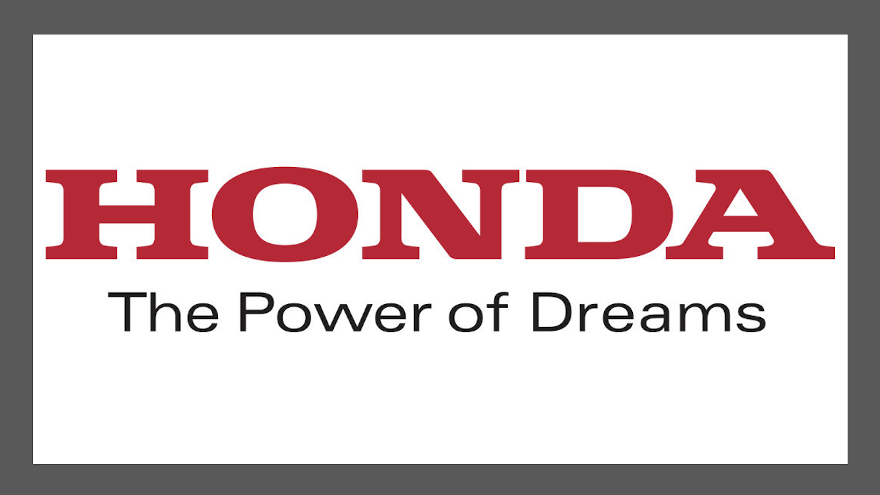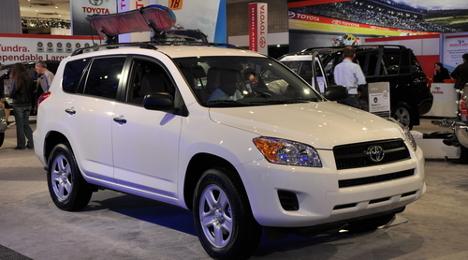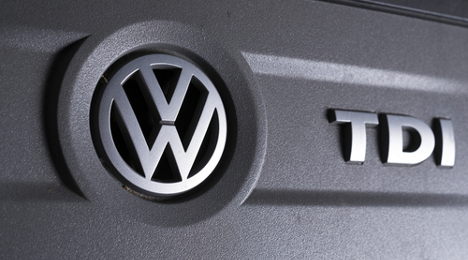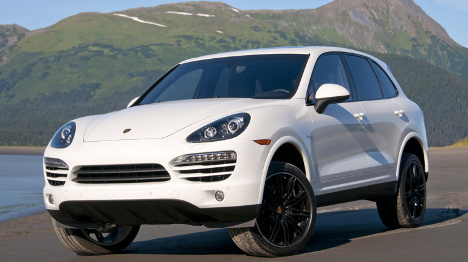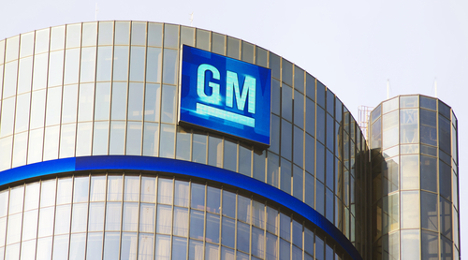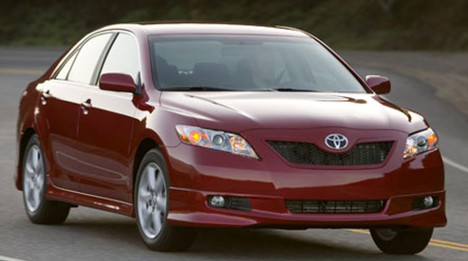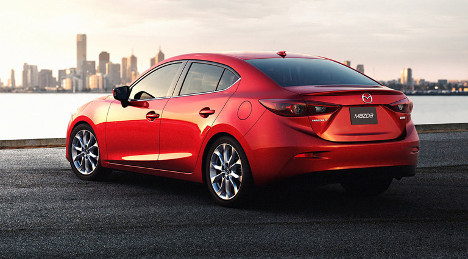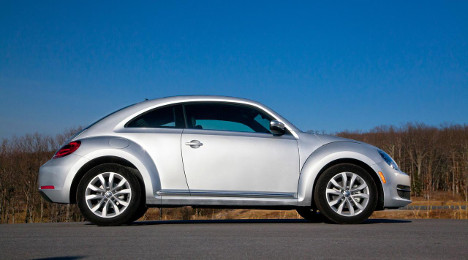On Monday, Honda Canada announced that it reached an agreement to resolve Takata airbag inflator class action litigation in Canada.
The automaker said the settlement will further enhance Honda Canada’s “significant” efforts to reach and encourage customers to bring their vehicles to authorized dealers for a free airbag inflator replacement.
As part of the settlement mentioned in a news release, Honda Canada said it will continue its comprehensive recall efforts.
“Honda Canada has taken unprecedented steps to reach owners, in order to expedite the replacement of recalled Takata airbag inflators,” the company said. “Honda Canada will continue to take steps to replace recalled inflators in every vehicle on the road that is affected by a Takata airbag inflator recall in an ongoing effort to better assure the safety of vehicle operators and passengers.”
The OEM emphasized that an ample supply of replacement airbag inflators is readily available to service the remaining affected vehicles.
Honda Canada went on to mention the proposed class action settlement also makes provision for the reimbursement of certain out-of-pocket expenses incurred by Honda Canada customers as a result of the recall.
Furthermore, the automaker noted the agreement also sets out continued activities by Honda Canada to recover recalled airbag inflators from scrap sellers through its Takata airbag inflator re-purchase program.
Officials added the proposed settlement agreement covers recalled Honda and Acura vehicles (automobiles and Goldwing motorcycles) with Takata airbag inflators. The proposed class action settlement also provides additional service/repair coverage for defective materials or workmanship in non-Takata replacement airbag inflators installed in recalled vehicles.
“Honda continues to urge owners of Honda and Acura vehicles affected by the Takata airbag inflator recalls to bring their vehicles to authorized dealers for the recall service as soon as possible,” officials said.
Honda vehicle owners can check their vehicles’ recall status at www.honda.ca/recalls or www.motorcycle.honda.ca/safety/recalls or by calling Honda Canada Customer Relations at (888) 946-6329.
Acura vehicle owners can check their vehicles’ recall status at www.acura.ca/recalls or by calling or Acura Canada Client Services at (888) 922-8729.
For more information on the class action settlement, visit www.hondaairbagsettlement.ca.
Transport Canada announced Thursday it has uncovered a potential dangerous defect in some Toyota RAV4 vehicles — a recall that is estimated to affect over 2.7 million RAV4s globally.
Transport Canada and Toyota Canada reported in a severe frontal crash, contact with the steel structure in the seat may cause the rear seat belt to be cut in effected vehicles.
Nearly 150,000 of those RAV4s are in Canada, which are immediately being recalled by Toyota to address the issue. The model years affected span from 2006 to 2012.
Transport Canada discovered the issue after reconstructing a fatal crash involving a 2011 RAV4 in Canada.
The department was particularly interested in this crash, since the front occupants of the vehicle survived the frontal crash, while the read passengers did not survive.
"This is more than just a case of Transport Canada finding a safety problem and doing a thorough investigation. These findings have a real-world impact — and it's measured in human life,” said Mar Garneau, Canada’s minister of transport.
“As a result of the department's investigation into this safety issue, lives will be saved in Canada and around the world. These findings underscore the importance of our crash test and safety oversight programs, and I'm very proud of the department's research engineers and investigators — they've done some tremendous work for Canadians,” he continued.
In the replicated crash, Transport Canada used a RAV4, crash dummies similar in weight to the actual passengers, “as well as an impact speed and crash angle that aligned with the fatal crash,” the statement said.
And during the test, both rear seatbelts severed, and both crash dummies sustained potentially deadly injuries.
The department presented its findings to Toyota once its investigation was complete, prompting a subsequent investigation by the automaker, which confirmed the problem.
An official recall was announced Wednesday, and the automaker will install seat flange covers to correct the seatbelt defect.
“Transport Canada will monitor this recall to ensure Toyota addresses the issue as quickly as possible,” the department said.
Affected owners are asked to contact their Toyota dealers to schedule a time to have the defect repair work completed.
Sister publication Auto Remarketing reported Thursday Toyota Motor Sales, USA announced that it is conducting a safety recall of model-year 2006 to 2012 RAV4 and 2012 to 2014 RAV4 EV vehicles for a potential seatbelt issue, as well, affecting approximately 1,124,000 vehicles in the U.S.
For more information, see www.tc.gc.ca/recalls.
Transport Canada’s Minister of Transport, Marc Garneau, has recently ordered Nissan Canada to immediately inform its vehicle owners of a previously recalled safety issue, marking the first time the ministerial power known as a Subsequent Notice Order has ever been invoked.
The issue involves owners of 2005 and 2006 Nissan X-Trail vehicles, which have a defect in the fuel reservoir filler pipe coating which could result in dangerous fuel leaks if left unrepaired.
According to Transport Canada, the department remains concerned that the defect hasn’t been corrected in enough of the affected vehicles despite the fact they were recalled by Nissan in 2014. A total of 22,245 vehicles were affected via this recall.
"The safety and security of Canadians remains my top priority, and I or the department will not hesitate to issue future recall notice orders in the interest of public safety,” Garneau said via a statement from Transport Canada. “Ordering Nissan to notify vehicles owners of this safety issue was not taken lightly at Transport Canada. I remain very concerned that Nissan is not doing enough to inform affected owners of this important recall."
The Minister of Transport gained the authority to issue a Subsequent Notice Order in 2015, which requires a manufacturer to further inform vehicle owners of a safety issue, but this power has not previously been used.
The order requires Nissan to identify and contact the current owners of the affected vehicles by using vehicle registration information.
Nissan is also required to send quarterly reports on the progress of the recall to Transport Canada.
Volkswagen Canada kicked off December with a nationwide apology campaign, utilizing ads featured in over 100 newspapers across the country as well as a digital campaign to apologize to the Canada’s Volkswagen owners for the company’s damaged reputation following the diesel scandal uncovered earlier this year that is still not entirely fleshed out.
Thomas Tetzlaff, VW Canada’s manager of media relations, spoke with Auto Remarketing Canada to help clarify the situation, saying that the point of the message was not only to apologize to the Canadian VW ownership and fanbase, as well as VW dealers, but also to thank them.
“The campaign explains the impact of this situation on our proud legacy, values and trust in the Volkswagen brand,” Tetzlaff said. “We take great pride in the base of support we have built in Canada and felt we owed it to our employees, dealers and customers to publicly acknowledge the damage done to Volkswagen’s relationship with Canadians and to declare our full commitment to restoring faith in our brand. We hope that our customers will go to our microsite for additional information, and to register directly with us so as to facilitate further communication about this issue. By registering at the site, affected TDI owners will initiate the process to receive our appreciation package.”
Tetzlaff said that the package is not intended as “compensation,” but more as a sincere “thank you” for customers and dealers maintaining their patience while the company works on a remedy for the vehicles alongside regulators.
Similar to the deal offered in the United States, the VW Canada said the “thank you” package includes:
- A $500 pre-paid credit card for use anywhere credit cards are accepted
- A $500 dealer credit, which can be used at the Volkswagen dealer of their choice for service, parts, accessories or as payment towards a car purchase
- 3 years of complimentary roadside assistance (an added three years for customers that still have their “original” roadside package in place)
“Thus far, we have received positive feedback from our customers, many of whom have already registered on the site,” Tetzlaff said. “We are hoping to reach as many of our affected owners as possible, as this will improve the flow of information, and will expedite the repair process when it has been established.”
Canadian branches of the Volkswagen, Porsche and Audi brands have all issued stop sales in light of the unexpected U.S. Environmental Protection Agency notice received Monday.
This news comes after the five companies under Volkswagen’s umbrella that are involved in the sale of its V6 diesel engines in the United States received notification from the EPA alleging that their 3.0 liter V6 engines also contain defeat devices that circumvent EPA emissions testing.
Volkswagen later denied those allegations.
Then on Wednesday, Porsche Cars Canada decided to voluntarily discontinue sales of model year 2014 through 2016 Porsche Cayenne Diesel vehicles until further notice.
In light of the stop sale, Porsche Cars Canada said, “We are working intensively to resolve this matter as soon as possible. Customers may continue to operate their vehicles normally.”
Audi Canada is stopping the sale of 2014-2016 A6, A8 and Q5 models, as well as the 2013-2015 Q7 models.
And according to a representative from Volkswagen Canada, the nameplate is ceasing sales for its diesel Touareg vehicles.
This second diesel-related notification of violation for the year from the U.S. EPA — sent to Volkswagen AG, Audi AG, Volkswagen Group of America, Porsche AG and Porsche Cars North America — outlines that the diesel engines containing the alleged defeat devices from model year 2014 through 2016 vehicles emit up to nine times the EPA’s standard of nitrogen oxide.
This list, provided by the EPA, covers only vehicles of these models that include the 3.0 liter diesel engines, which it says includes approximately 10,000 vehicles already sold in the U.S. since 2014 along with an unknown volume of 2016 vehicles, which include:
- 2014 VW Touareg
- 2015 Porsche Cayenne
- 2016 Audi A6 Quattro
- 2016 Audi A7 Quattro
- 2016 Audi A8
- 2016 Audi A8L
- 2016 Audi Q5
Via an official statement, Volkswagen denied that its V6 TDI engines contain defeat devices. Here is the full statement:
"The United States Environmental Protection Agency (EPA) informed Volkswagen Aktiengesellschaft on Monday that vehicles with V6 TDI engines had a software function which had not been adequately described in the application process. Volkswagen AG wishes to emphasize that no software has been installed in the 3-liter V6 diesel power units to alter emissions characteristics in a forbidden manner," the statement said. "Volkswagen will cooperate fully with the EPA to clarify this matter in its entirety."
Porsche Cars North America issued its own official statement regarding the allegations toward the diesel variant of the Porsche Cayenne.
"We are surprised to learn this information. Until this notice, all of our information was that the Porsche Cayenne Diesel is fully compliant," the statement said. "Porsche Cars North America will cooperate fully with all relevant authorities."
Porsche Cars North America issued a stop-sale Tuesday evening: "Porsche Cars North America, Inc. today decided, in view of the unexpected U.S. EPA notice received yesterday, to voluntarily discontinue sales of model year 2014 through 2016 Porsche Cayenne Diesel vehicles until further notice."
Dealers who handle older vehicles should take notice of today’s recall announcement from General Motors, which includes 125,785 sedans and coupes in Canada from model years 1997 to 2004 that may present a fire hazard.
GM specified that the total number of affected vehicles in the U.S., Canada, Mexico and “exports” totals 1,411,332 units.
Auto Remarketing Canada reached out to GM earlier today for comment, and the automaker replied with the following statement:
General Motors is recalling 1,283,340 older sedans and coupes in the U.S. from the 1997 to 2004 model years because drops of oil may be deposited on the hot exhaust manifold through hard braking, which can cause engine compartment fires. GM is finalizing on a remedy. The company is aware of post-repair fires in some vehicles but no crashes or fatalities. There have been 19 reported minor injuries over the last six years.
The vehicles impacted, which contain the 3.8-liter V6 3800 engines, include:
- 1997-2004 Pontiac Grand Prix
- 2000-2004 Chevrolet Impala
- 1998-1999 Chevrolet Lumina
- 1998-2004 Chevrolet Monte Carlo
- 1998-1999 Oldsmobile Intrigue
- 1997-2004 Buick Regal
At the time of this writing, no repair timeline is available for these vehicles.
Toyota Canada Inc. announced a new safety recall this week for issues with the driver’s side power window master switch in certain vehicles.
In impacted vehicles, the power window master switch may have been manufactured with insufficient lubricant grease.
“If sufficient grease is not applied, under certain conditions the switch may develop a short circuit that can cause the switch assembly to overheat and melt. A melting switch can produce smoke and potentially lead to a fire,” the company said in the statement announcing the recall.
As of Thursday, the VIN range of possible affected vehicles was still subject to confirmation, and Transport Canada will be notified as soon as the number becomes available, the company said.
That said, the automaker has reported the issue impacts 6.5 million vehicles worldwide, 2 million of which are in the U.S.
Affected models include:
- 2007 and 2009 Toyota Camry and Toyota Camry Hybrid
- 2009-2011 Toyota Corolla
- 2009-2011 Toyota Highlander and Toyota Highlander Hybrid
- 2009-2011 Toyota Matrix
- 2006-2007 and 2009-2011 Toyota RAV4
- 2009-2011 Toyota Sequoia
- 2009-2011 Toyota Tundra
- 2006-2007 and 2009-2011 Toyota Yaris
- 2006 and 2009-2011 Scion xB
- 2009-2011 Scion xD
Interestingly, Toyota previously recalled a group of 2007-2009 model-year vehicles for a similar conditions, and this safety recall serves to add vehicles not previously involved in the prior action that utilized an alternative lubricant application method.
Owners of the involved vehicles will be notified by mail. When owners bring their vehicles in, Toyota dealers will inspect the switch and apply heat-resistant grease. Then, if the switch is not operating normally, the switch circuit board will be replaced.
Mazda Motor Corp. is calling for the stop sale and stop delivery for certain Mazda3 models.
The company is launching a Safety and Emission Recall Campaign for certain 2015-2016 Mazda3 vehicles — built from May 21 through Aug. 23 of this year — impacting approximately 5,349 vehicles in Canada.
And approximately 14,270 vehicles in the U.S. and 136 vehicles in Puerto Rico are affected, as well.
The company explained that a defect in the fuel shut-off valve may allow fuel to flow into the charcoal canister.
“With this condition, the malfunction indicator light may illuminate, and if the fuel exceeds the canister capacity, fuel leakage could occur, increasing the risk of a fire and/or engine stalling,” the company said in statement.
And Mazda is in the process of initiating an official recall notification.
Owners of the effected vehicles will be notified by mail early this month, the company said, and will be informed to bring the vehicle to their Mazda dealer as soon as possible.
Upon delivery, the dealer will inspect the fuel tank to determine if the defect exists on the vehicle, and if it does, the dealer will replace the fuel tank and charcoal canister at no cost.
There have been no reports of accidents or injury related to this issue, the company said.
The company shared a rental of loaner vehicle will be provided for free to the owner, until the vehicle is repaired.
The hammer is falling on Volkswagen in both the U.S. and Canada. VW Canada told its dealers yesterday to stop selling diesel-powered vehicles involved in an emissions-testing scandal that recently came to light.
This statement comes just a few days after the U.S. Environmental Protections Agency and the California Air Resources Board revealed its findings that allege five of the automaker’s diesel-powered vehicles include “defeat device” software that circumvents emissions standards for certain air pollutants late last week. Though the diesel vehicles were marketed as being better for the environment, the EPA said though the VW vehicles in question passed the emissions test, when on the road, they emit up to 40 times the national standard for nitrogen oxide.
The Financial Post reported VW Canada spokesman Thomas Tetzlaff said in an email that the Canadian division of the automaker is working with its American counterpart and parent company in Germany to resolve the issue.
Tetzlaff was reported going on to say that nearly all of the company’s VW brand diesel cars are included in the stop sale order in Canada, including the Jetta, the Golf and the Beetle.
Specifically, in Canada, the affected diesel models include:
- The VW Jetta — from 2009-2015.
- The VW Golf — from 2010-2015.
- The VW Beetle — from 2013-2015.
- The VW Passat — from 2012-2015.
- The VW Golf Wagon/Sportwagon — from 2009-2015.
Martin Winterkorn, VW chief executive officer, addressed the issue on Sunday in a statement, nothing, "I personally am deeply sorry that we have broken the trust of our customers and the public.”
Interestingly, Tuesday morning, Reuters was reporting VW will be dismissing Winterkorn over the emissions-cheating scandal. Reuters cited a German newspaper, The Tagesspiegel, which reported unidentified sources on Volkswagen's supervisory board as saying Winterkorn would be replaced by Matthias Mueller, the head of the carmaker's Porsche sports car business.
Volkswagen AG also released a statement Tuesday morning noting that further internal investigations conducted to date have established that the aforementioned “defeat device” software is also installed in other Volkswagen Group vehicles with diesel engines.
“For the majority of these engines the software does not have any effect,” the company said. The discrepancies cited include vehicles with Type EA 189 engines, and involves some 11 million vehicles worldwide.
“A noticeable deviation between bench test results and actual road use was established solely for this type of engine. Volkswagen is working intensely to eliminate these deviations through technical measures. The company is therefore in contact with the relevant authorities and the German Federal Motor Transport Authority (KBA – Kraftfahrtbundesamt),” it continued.
To cover the service measures and any fines that may be billed out by regulatory agencies, VW plans to set aside a provision of some $6.5 billion euros, which will be recognized in the profit and loss statement in the third quarter of the current fiscal year.
The said, this amount may be subject to revaluation as the scandal unfolds.
“Volkswagen does not tolerate any kind of violation of laws whatsoever. It is and remains the top priority of the board of management to win back lost trust and to avert damage to our customers. The group will inform the public on the further progress of the investigations constantly and transparently,” VW management shared.
The VW emissions-cheating scandal is already on the to-do lists of many U.S. and Canadian law firms.
In fact, Canadian Merchant Law Group LLP announced today it is launching national class action litigation against Volkswagen.
A B.C. Supreme Court Class Action was filed today with the Court in Vancouver against Volkswagen, and similar lawsuits are being filed in the coming days by Merchant Law Group lawyers from Alberta, Ontario and Quebec, as part of this Canada-wide class action litigation, the law firm reported.
Law firms in the U.S. are gearing up, as well, with Block & Leviton and Seattle-based Keller Rohrback both filing nationwide class action complaints against the automaker already.
Though VW Canada has issued a stop-sale, as for what will happen to the impacted VW vehicles already on the road in Canada, we will have to wait and see.
As CarProof continues its province-to-province campaign to disclose the lesser-known details of used-vehicles sold in Canada, some disturbing statistics come out of Alberta.
According to the company, nearly half of all used-car transactions in Alberta occur without proper disclosures. On top of that, roughly 20 percent of used vehicles listed online for sale in Alberta have an unfixed safety recall.
To put those numbers in perspective, CarProof says the number of vehicles on the road in Alberta operating with an unfixed manufacturer-initiated safety recall is close to half a million. Looking at vehicles sold, the company says that approximately 200,000 used vehicles sold annually by Albertans are sold without proper disclosure of the vehicle’s accident history.
“The number of unsafe vehicles on the roads and listed for sale in Alberta is alarming,” said Ed Woiteshek, president and chief executive officer at CarProof. “It’s a public safety issue and, as Canada’s gold standard in used car information, we are in a unique position to help do something about it.
“It’s clear the current system to notify consumers of recalls is broken,” he continued. “We hope giving away free CARPROOF reports will help be part of the solution to make our roads safer.”
These results follow the company’s announcement last month for Manitoba, which found that one in 10 vehicles registered in the province had open safety recalls.
In a recent correspondence with Auto Remarketing Canada, John Bachinski, the executive director of the Alberta Motor Vehicle Industry Council, laid out the guidelines provided to dealers in his province.
“In Alberta we require shoppers to be presented with a current and complete mechanical fitness assessment prior to buying or leasing a used vehicle,” Bachinski said. “We recommend potential buyers get used vehicles independently inspected and research the vehicle history before entering in to a purchase contract. The buyer may also want to check with the manufacturer to see if there are any outstanding warranty repairs.”
For more information on AMVIC and its regulations, visit its site here.

